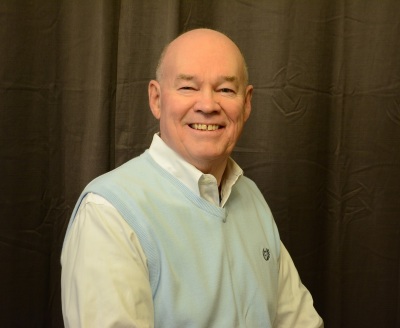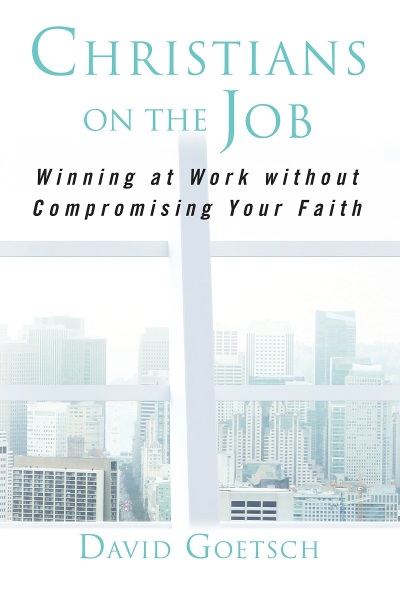Christians in a secular workplace: How to navigate anti-faith harassment, LGBT co-workers, #MeToo

A Christian counselor with years of experience in the private business sector has released a book centered on helping Christians not compromise their beliefs in a secular workplace.
David Goetsch, who is also a business professor and retired U.S. Marine, released the book Christians on the Job: Winning at Work without Compromising Your Faithearlier this month.
In the book’s introduction, Goetsch explained that he was inspired to write the book by the many Christians he had counseled regarding workplace issues, with the hope that it will provide important guidance on how to act in a secular work environment.
“As Christians in secular careers, we must be both 'wise' and 'innocent,' or we risk being devoured by predatory coworkers. Helping Christians accomplish this difficult but critical challenge is the purpose of this book,” wrote Goetsch.
The Christian Post interviewed Goetsch last Friday on issues including his book, the issue of anti-Christian harassment in the modern American workplace, and his view of the controversial “Billy Graham Rule.” Below are excerpts from that interview.
CP: How pervasive do you believe anti-Christian harassment is in the secular workplace?

Goetsch: I think it is increasing. I grew up in a time when even the secular world bought into Christian principles, they might not call it that, but that’s what it was. Anymore, we’re finding more and more cases. Basically, these are people who come to me for counseling and that’s how I get my information. And more and more they are coming in claiming that ‘oh, I’ve been told to take the 23rd Psalm off of my wall in my office,’ ‘I’ve been told …’ One of them even had to scrape a bumper sticker, pro-life bumper sticker off the back of his car, he wouldn’t be allowed to park in the parking lot. I think it is becoming more ubiquitous than it’s been in the past.
CP: In chapter one you discuss the First-Response Model, a multi-step process to handle workplace issues. The 5 steps, in order, are "Avoid responding out of anger, fear, or frustration," "Pray for guidance," "Seek guidance in Scripture," "Seek the counsel of Godly men and women," and "Translate Scriptural guidance and wise counsel into workplace-appropriate practical action." How did you develop this Model?

Goetsch: It happened over time.
When you’re counseling people who have these kinds of issues, you want to make sure … that they don’t go it alone.
If their faith is being challenged because of their belief in God, they need God’s help to deal with it.
I didn’t want them to become like the people who were rejecting them, oppressing them, or even in some cases persecuting them.
CP: In describing the First-Response Model, you urge the reader to not skip to step 5. Why do you believe they must go through all 5 steps?
Goetsch: Because if they don’t go through all the steps before they get to step 5, they’re not going to have the help they need. They won’t be able to find ways to come up with a response that is biblically correct and workplace-appropriate. It’s those first four steps that lay down the groundwork for that kind of response.
CP: You wrote that "Christian Love Is better than Political Correctness." Why do you believe that is so?
Goetsch: Here’s what I have been finding happening in the workplace. We’re beginning to see a little bit of a backlash against political correctness because people are learning to spout the right politically correct platitudes, when its obvious that they don’t mean them, and that they’re just going through the motions of saying the words and the people on the receiving end of that don’t appreciate it, but what they do appreciate is somebody who will treat them with respect, with human dignity, treat them with honesty, integrity, in a Christ-like manner. And people who treat you that way, I don’t think you care whether they can spout the latest fad in political correctness or not. Or the latest terminology of political correctness because you know they are treating you in a way that is sincere and that is real and that is true.
CP: In chapter 9, you included a whole section specifically on how Christians should work alongside LGBTQ coworkers. Why did you feel it was important to give so much attention to that particular scenario?
Goetsch: We’re beginning to see more and more instances of, like, transgender restrooms and that type of thing.
You’re seeing more and more of this, and in the Christian community we’re also seeing a lot of pushback against that. And the point I wanted to make was the workplace is not the place to fight the battle of the LGBTQ agenda, for them or for us. When we go to work, we’re paid to do a certain job and our employer needs us to do it and do it well. And so, what we should do on the job is we can work side-by-side with people who do not share our beliefs or our values because we have the common value of the work, work in common, but we can treat them in ways with dignity and respect that do not validate their beliefs.
CP: What is your opinion of the "Billy Graham Rule" aka "Mike Pence Rule"?
Goetsch: I follow the same rule and I agree with it completely. The best way to defeat the “#MeToo fad” that’s going on is to not allow yourself to be in a position of #MeToo.
That doesn’t go over very well. There are people who will complain about that who criticize Mike Pence, who criticized Billy Graham, but you don’t see anybody claiming #MeToo about either of those gentlemen.
CP: While your book focuses on the secular workplace, do you believe there might be some value to your book's lessons for Christian workplace environments?
Goetsch: I do and I actually make that point in one of the chapters. It’s only a couple of paragraphs, but I say just because you work in an ostensibly Christian environment, remember that no matter who you work with, you’re working with sinners, including you. So we all have the potential to behave in ways that are at odds with scripture, so don’t presume that because you work in a Christian setting all the behavior you see there is going to be Christian behavior. It may not and so what I say in this book applies in that setting and in a secular setting.





























